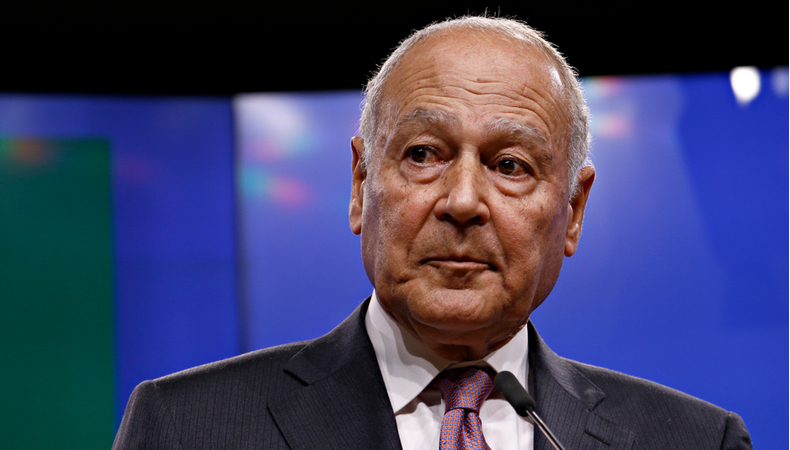Foreign Ministers to reconfirm Abul-Gheit as Secretary-General of the Arab League

Arab foreign ministers on Wednesday decided to reconfirm the current secretary-general of the League of Arab States, Ahmed Abul-Gheit, for a further five-year term, a diplomatic official told “The Arab Posts”. The official confirmed that: “The Arab foreign ministers have unanimously decided to approve Egypt’s request to renew the Secretary-General of the League of Arab States, Ahmed Abul-Gheit, for a new period of five years, starting from next July 1st “.
The same source explained that the ministers’ approval came during the consultative meeting preceding the session of the 155th ordinary session of the Council of the League of Arab States at the ministerial level, which is taking place at the Cairo headquarters. Abul-Gheit, who held the post of Foreign Minister in Egypt, was elected Secretary-General of the Arab League on March 3, 2016, to succeed the Egyptian diplomat, Nabil Al-Arabi. The first term expires on 30 June 2021.
The Arab League Charter did not specify a limit on the number of terms of office of the Secretary-General of the Arab League. Since its founding in 1945 and the establishment of its headquarters in Cairo, the League has been customary to hold the post of general secretary of an Egyptian diplomatic figure, except the period from 1979 to 1990, during which the Tunisian diplomat Chadli al-Qulaibi held this prestigious role.
Between the first and second world wars, in the Arab countries, there was a need for independence because the dissolution of the Ottoman Empire could be followed by a full liberation of those who were formerly part of it.Some countries were under control of the European powers or had recently emerged, others feared influence or direct external controls. Above all immediately after the conclusion of the Great War, but more than anything else just after the end of the Arab revolt, some critical moments of the insurrection for independence attempts took place in Egypt (so-called revolution of the Wafd party, 1919-1922), in Libya (revolt of the Senussi, against Italy, 1920-1922), in Morocco (revolt of Abd el-Krim, 1921-1923), in Tunisia (uprisings of the liberal constitutional party, 1922-1924). In 1926 the first Islamic Congress was held in Cairo, an important step in the growth of pan-Arab sentiment.
In 1944 Egypt, formally a free monarchy and de facto English colony involved in the Second World War, formed a study group whose work resulted in the so-called Alexandria Protocol. This protocol was the laborious fruit of the Alexandria Conference of 25 September 1944, held in the ancient city. Overcoming the distances, the Protocol laid the definitive foundations for the constitution of the League. Among the articles in the document, one concerned the Jewish-Palestinian question, which he carried out in terms of painful recognition of the horrors and suffering suffered by Jews, but which denied the Zionist claims to establish a Jewish state in Palestine.




